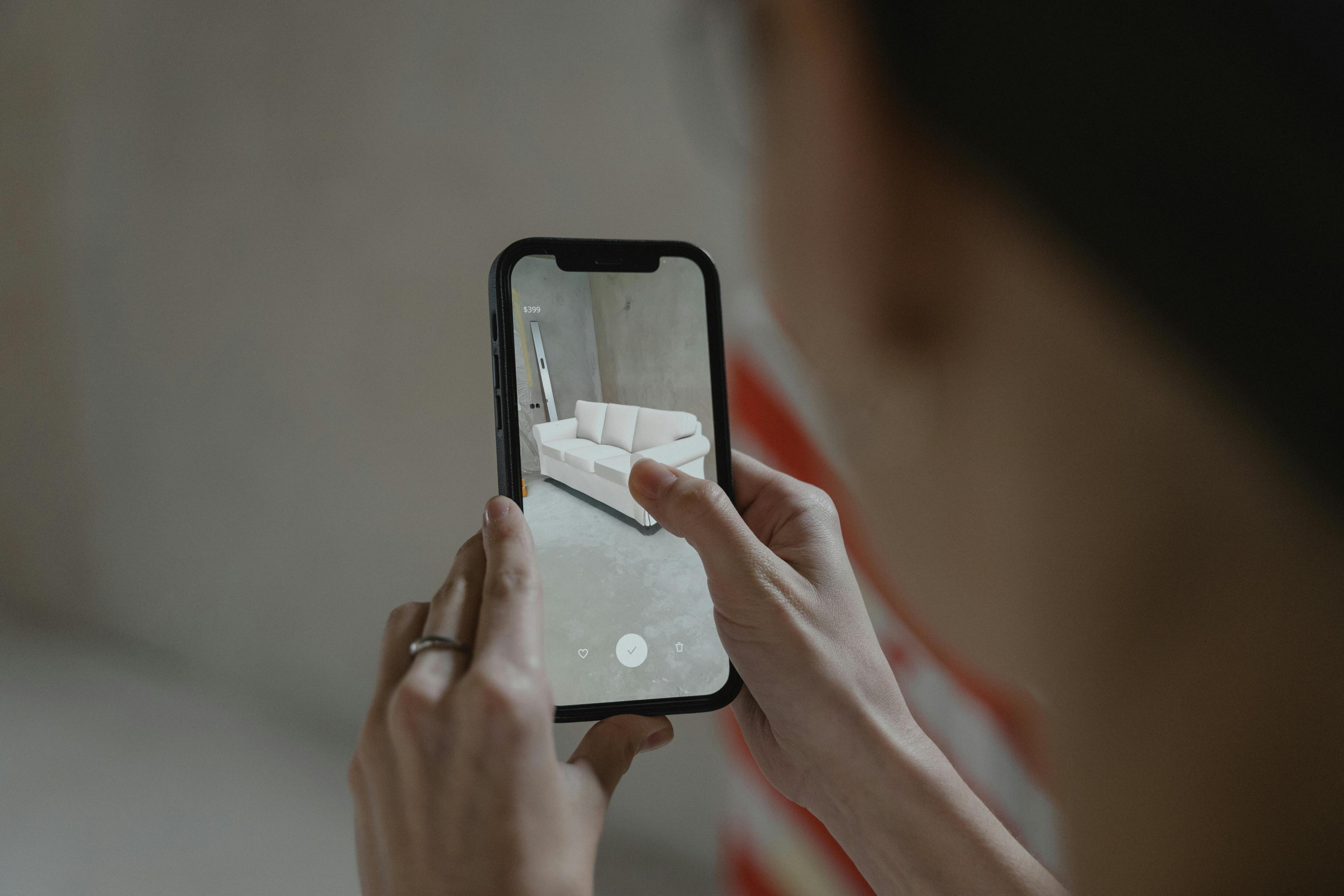The latest innovations in AI and tech are set to revolutionise shopping forever.
These advancing technologies stepping into the forefront of the retail industry beg the questions: How will AI be implemented into our shopping experiences? And, what will happen to traditional in-store shopping?
Retail Doctor Group (RDG) CEO, Brian Walker, said there are many trends that will impact how AI and more traditional shopping methods will exist in the near future.
The in-store experience
According to RDG’s Insights, despite digital transformation, human connection in retail stores remains critical.
RDG's consumer and retail sentiment study showed that 69% of consumers enjoy courteous staff interactions. Despite being digital natives, Gen Z are a strong retail force with 42% of their spending in physical stores.
Walker suggests that this is because people are social creatures and crave in-person interactions.
“We've got a neuroscience part of us, and we know our business, and we know humans are social by instinct,” he says.
“We're still going to want to be part of a tribe.”
While physical stores are here to stay, Walker says AI innovation will change how this experience works and how products will be presented to the consumer.
This includes consumers' attitudes towards staff. While people enjoy having courteous and helpful staff in store to help them, 59% of staff would prefer them to maintain a distance until asked, which is a 12% increase from 2023.
Walker says this will lead to omnichannel becoming more commonplace with AI being implemented to talk to customers and find out what they want.
“The in-store experience will become a much more private and personal experience to the consumer,” Walker says.
“We'll see robotics in all aspects, including in customer service.”

Customers' loyalty will also play a large role in how physical stores are discovered as opposed to walking past supermarkets.
“It's about really doubling down and building community and having a great point of difference for the physical retailer,” he says.
“It’s also about creating an emotional experience for a customer who wants to belong.”
As it stands, customer loyalty is the main thing setting the physical store apart from its online counterparts like Amazon and Temu.
RDG consumer research shows that loyalty remains the number one priority for retailers in 2025, with 83% of consumers staying loyal to their preferred retailers. Two in three consumers are also influenced by loyalty programs in some way.
According to Roy Morgan's research, over 15% of Australians shop at Amazon in a month with annual sales hitting an estimated A$5.6 billion. Temu has also seen similar growth with around 1.4 million Aussies shopping there and spending $1.4 billion annually.
Despite this Roy Morgan’s most trusted brand surveys often show that region-specific physical brands, such as Bunnings and Kmart often rank as the most trusted brands with brands like Temu regularly ranking as the least trustworthy brands.
This aligns with RDG’s consumer survey, which shows 30% of consumers reported wanting to support local retailers, which is an increase from 2023.
Managing stock
Walker also says that AI will heavily impact stock handling in-store.
The current stock model of items on the shelf could become less commonplace, with stores instead taking a fulfilment-driven approach with AI.
“For example, you may use 12 tubes of a certain brand of toothpaste a year. They'll all be laid out and predicted for use,” Walker says.
“We won't bother going to the supermarket the way that we do at the moment.”

Despite this, people will also have a place in the retail world.
Instead of being primarily on the store floor, our skill sets will change over time and people will take on more behind-the-scenes roles.
“We’ll see people in roles like platform builders, coders, and much more of that in the retail experience,” Walker says.
Saving time
Walker said many of these implementations are likely to become a reality due to people being time-poor and also as a way to refine the shopping experience.
“Much of this will happen because we're increasingly experiencing less and less time for discretionary activities like shopping,” he says.
“So AI will maximise our time investment, both at home and in the physical world.”
Augmented reality and virtual reality will also become an alternative to in-store experiences by displaying your desired store in front of you from the comfort of your own home.
“If this all comes true, when you decide on a new pair of Nike runners you’ll press your modem and a Nike store will appear,” Walker says.
“You will have a virtual store in your lounge room while you pick your shoes, and then they'll be delivered that afternoon.”

AI will also become a tool for the time-poor as subconscious commerce where brands anticipate consumer needs before they even know.
RDG research suggests that this will be implemented through real-time data to predict consumer actions.
Walker says this will create a less decision-based market and move towards a more fast-paced convenience-driven model where brands will come to the consumer.
“Retailers will have effectively high visibility to the personal analytics of a customer, certainly, certainly around product mix, certainly around the history of the customer,” he says.
“Instead of a customer being the initiator of a purchase, they will become the recipient and the initiator will the the AI engine."
